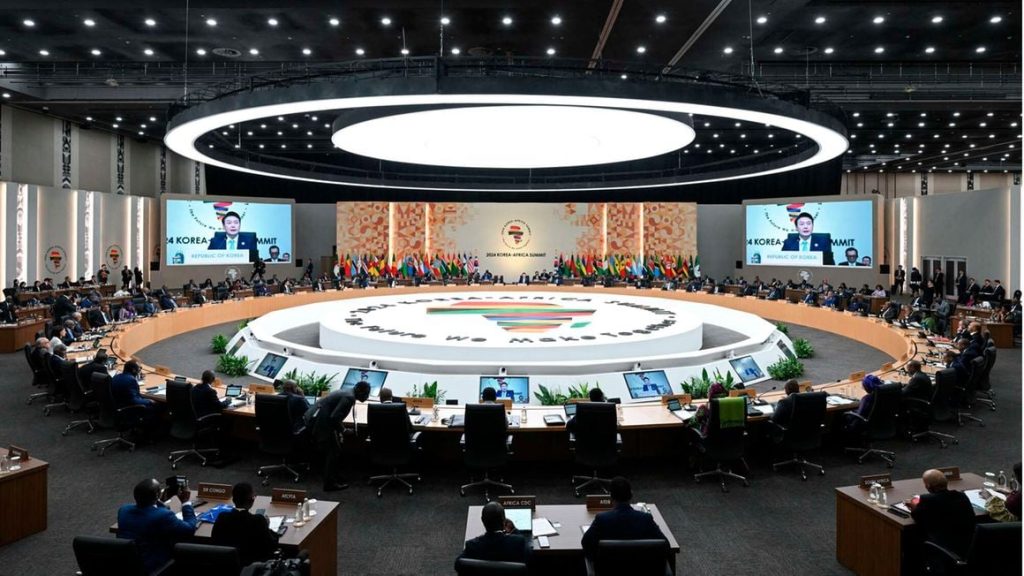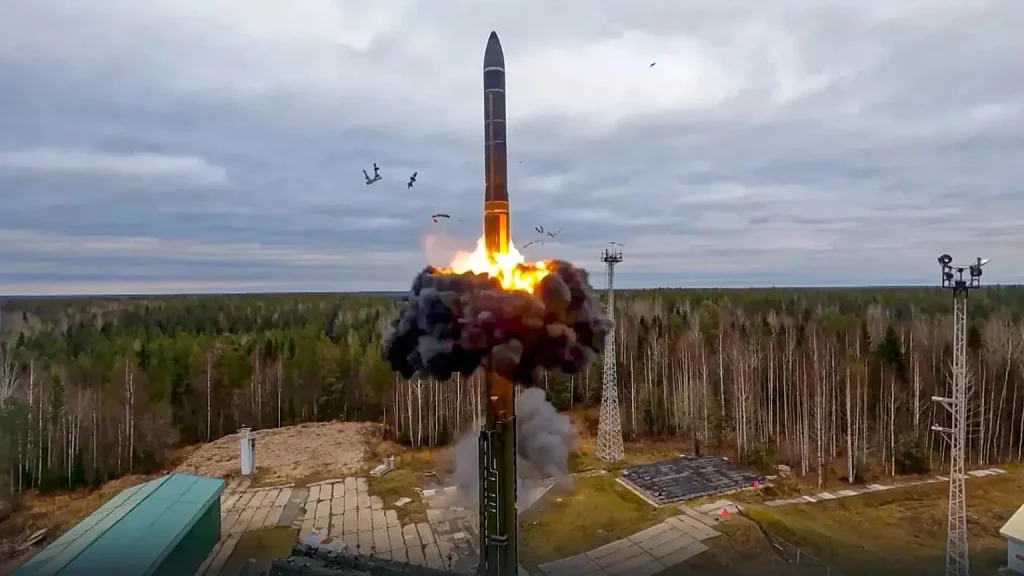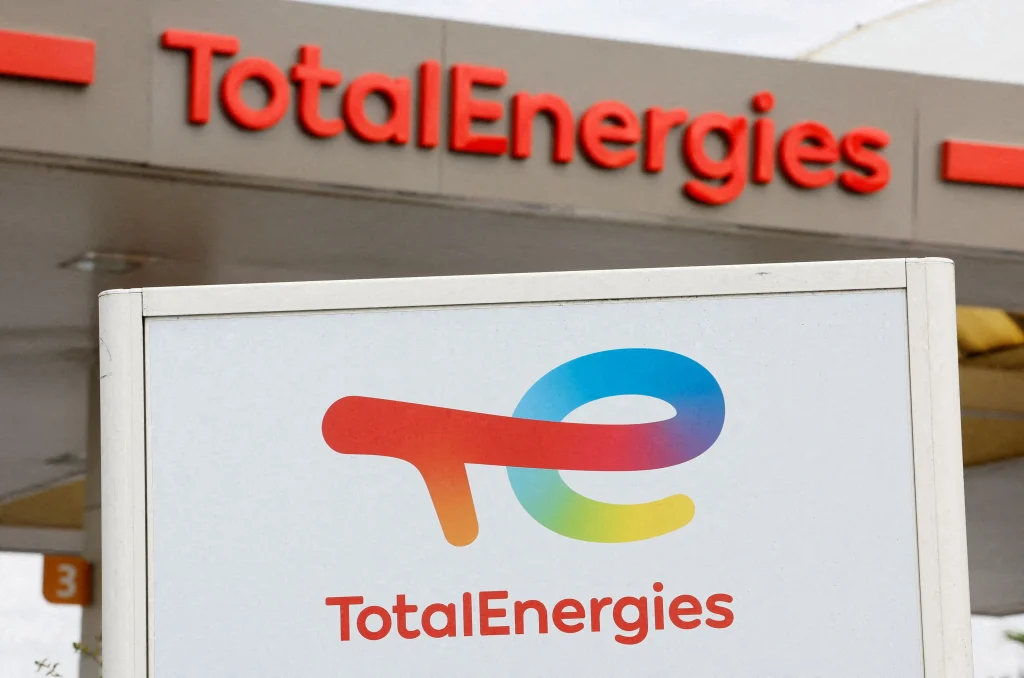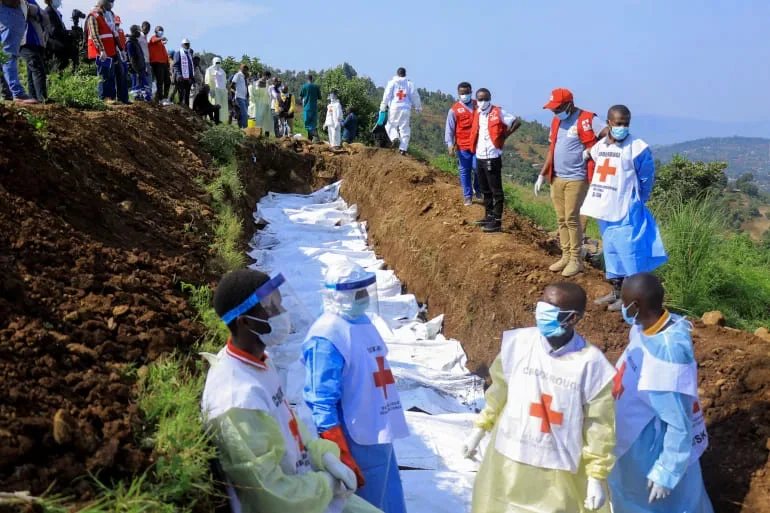South Korea is looking to shift its market focus and offer technological expertise to access African countries. This move puts it among other global powers wanting a share of Africa’s resources.
At the Korea-Africa Summit in Seoul this week, however, South Korea did not promise a direct transfer of technology to Africa, which many African leaders had requested.
Leaders from East Africa, including Kenya’s President William Ruto, Tanzania’s President Samia Suluhu Hassan, Rwanda’s President Paul Kagame, and Uganda’s Vice President Jessica Alupo, had asked for cooperation in technology, balanced trade, and debt reduction. They emphasized that these issues are critical for their economies.
The leaders praised South Korea’s technological advancements, such as its leadership in energy and semiconductor production, which makes the country a key market for Africa’s minerals used in energy.
However, African leaders were also aware of the criticism that Africa’s natural resources are often exported without being processed locally, and technology is rarely passed on to Africans.
Kenya’s President Ruto called for a significant increase in technology transfer and knowledge sharing to empower Africa’s youth and boost inclusive economic development. During the Korea-Africa Business Summit, he also encouraged Korean firms to invest in Kenya’s plan to add 3GW of power to its grid from green energy sources.
Tanzania’s President Hassan also spoke about clean energy, highlighting the importance of clean cooking solutions. She argued that investing in clean cooking would lower emissions, reduce deforestation, and save lives, while also offering economic opportunities.
Despite these calls, South Korea did not commit to transferring technology. Instead, they announced the Tech4Africa initiative, which aims to support education and training for Africa’s youth. They also pledged to cooperate in areas like science and digital technology and offer training opportunities.
In a joint statement, South Korea promised to share its expertise in areas like digital government, customs e-clearance, and online procurement systems. African leaders wanted more, asking for collaboration in advanced fields like robotics, artificial intelligence, and biotechnology.
Rwanda’s President Kagame highlighted the potential for both Africa and Korea to work together on these technologies. Uganda’s President Museveni saw the summit as a chance for Africa to learn from Korea’s technological achievements and gain valuable knowledge.
One of the challenges of technology transfer is the reluctance of developed countries to share their technology due to concerns over intellectual property rights (IPR). Pradeep Mehta, Secretary-General of CUTS International, explained that many developed nations fear copyright issues when sharing technology with countries that have weak IPR enforcement.
Mehta suggested that Africa’s free trade area, AfCFTA, should be used to negotiate better trade and investment agreements with foreign countries. He noted that without strong IPR protection, technology transfer would be difficult, and foreign manufacturers would prefer to sell their goods and services rather than help local industries.
The AfCFTA agreement, which came into force three years ago, has been slow to take effect. However, during the summit, AfCFTA’s Secretary-General signed an agreement with the Korea International Trade Agency to enhance cooperation between Africa and South Korea.
South Korea promised to increase its development assistance to $10 billion by 2030 and invest $14 billion in African countries through Korean businesses. They also pledged to work on bilateral agreements with African countries, including economic partnerships, trade agreements, and investment protection.
Countries like Kenya, Tanzania, and Morocco are already in talks with South Korea about these agreements. Whether these deals will help or hinder the AfCFTA remains to be seen.
Ngovi Kitau, a former Kenyan ambassador to South Korea, pointed out that Africa’s agricultural products are currently uncompetitive in South Korea because there is no free trade agreement between the two regions. He suggested that a collective African free trade agreement would be the best approach.
Still, some positive outcomes came from the summit. Uganda signed a $500 million loan deal to fund infrastructure projects, while Kenya secured $485 million in development funding. Part of Kenya’s funding will support the Konza Digital Media City Project, which aims to create a digital media and technology ecosystem.
South Korea has also been supporting the Konza project through its Economic Innovation Partnership Programme and helped establish the Kenya Advanced Institute of Science and Technology (Kenya-Aist). This institute, modeled after the Korea Advanced Institute of Science and Technology, is nearing completion and will be opened later this year. Kenya’s President Ruto invited South Korean President Yoon to the official launch.























